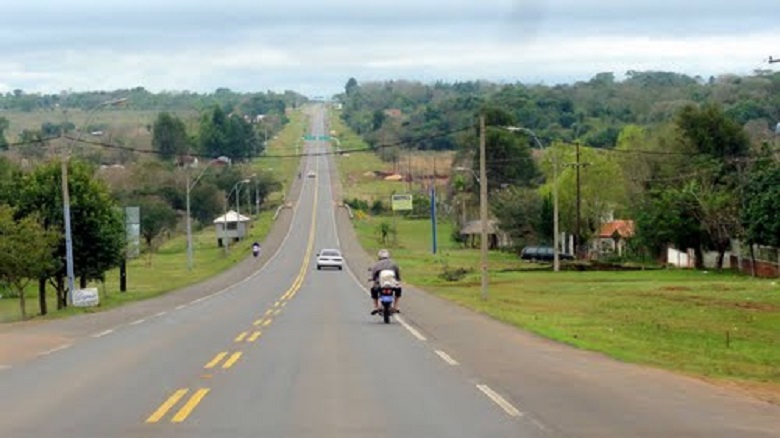Challenge
Paraguay is a small, open, land-landlocked country dependent on increasing external trade for future economic growth. Good road infrastructure is a vital ingredient of expanding trade by reducing logistics costs. As of 2005, road sector management was seen as ineffective at delivering the required results. The main road agency, responsible for 10 percent of the national investment budget, lacked capacity, especially in planning and strategic management. It favored new investment over maintenance of existing roads, leading to deteriorating road conditions and higher costs to users. In addition, the needs of rural communities were not being met; insufficient resources were devoted to upgrading poor quality roads in remote areas, thus constraining access to services and opportunities.
Approach
The World Bank–financed Paraguay Road Maintenance Project was rooted in an agreement with the Paraguayan government on a road management strategy addressing the interrelated requirements of increased resources for the road sector and better allocation of those resources between new investment and maintenance. In addition, the strategy focused on strengthening road management capacity, starting with the three departments of San Pedro, Caaguazú, and Caazapá, through improved planning and implementation effectiveness; enhanced transparency and accountability of operations; and better access for excluded rural communities. The new Road Sector Strategy was adopted in December 2006 and provided the framework for interventions supported by the project through closure in June 2016. During implementation, the Bank provided substantial assistance to support capacity building. Introducing “level of service” road maintenance contracts made the most significant impact. Under this system, contractors are paid for achieving specified standards of performance rather than for their inputs.
Results
Over the course of project implementation, between 2008 and 2016, improvements were achieved in the national- and department-level road networks and in the national road agency. Major results included:
For Paraguay's main road network:
- Successful completion of 623 kilometers of road maintenance contracts based on level of service.
- A 93 percent compliance rate for all level-of-service indicators for the maintenance contracts.
- A new integrated road toll system covering the most trafficked roads.
For the three departments of San Pedro, Caaguazú, and Caazapá:
- Upgrades made on 144 kilometers of secondary roads.
- Development of six new microenterprises to carry out road maintenance.
- Construction of three multiuse community centers, with specific attention paid to the needs of the indigenous community.
- Improved roads benefiting 34,100 residents.
- Satisfaction with the quality of the improvements among 77 percent of road users, according to a May 2016 survey.
For Paraguay's main road agency:
- Creation of a road strategic planning unit, including a five-year investment plan.
- Implementation of a new communication strategy, including a governance and accountability improvement program.
- Introduction of an enhanced road monitoring system, including regular road inventories and traffic counts.
Bank Group Contribution
The World Bank, through the International Bank for Reconstruction and Development, provided a loan in the amount of US$74 million toward the US$107 million total project cost. An amount of US$930,000 was provided through a Policy and Human Resource Development grant to assist in the preparation of the project.
Partners
The World Bank worked closely with the Inter-American Development Bank (IDB) to introduce output-based maintenance through level-of-service contracts, which enhanced the impact of the road maintenance reform and supported sustainability efforts. The IDB financed an additional 629 kilometers of improvements, and the International Labor Organization provided technical assistance in developing the microenterprise program that helped establish road maintenance capacity in San Pedro, Caaguazú, and Caazapá. The main road agency, Ministerio de Obras Públicas y Comunicaciones (MOPC, Ministry of Public Works and Communication), was the pivotal internal partner in carrying forward all aspects of project implementation. Instituto Nacional del Indigena (National Indigenous Institute) helped elaborate the plans proposed by indigenous peoples and for the development of the multiuse community centers.
Beneficiaries
Traffic increased by 7 percent annually on average during the life of the project, well beyond the expected 2.5 percent increase. As a result of improved roads and regular road maintenance, however, road users experienced the benefits of lower operating costs (per kilometer costs decreased by about 40 percent in the project areas, according to reports) and reduced travel times. Public transport service in the three project departments are more frequent, and residents enjoy better access to services and opportunities, thanks to the new multiuse centers.
Moving Forward
Project results are likely be sustainable. More than 50 percent of Paraguay’s main road network is now maintained under level-of-service contracts. New roads are being contracted, including a further 317 kilometers under IDB funding. MOPC has improved its effectiveness, resulting in an 89 percent rate of budget execution, as compared to 68 percent in 2014. A follow-up Bank loan of US$100 million for the Transport Connectivity Project has been approved; the new project will extend the geographical scope of interventions beyond that of the Paraguay Road Maintenance Project, and it will increase the focus on road safety.
